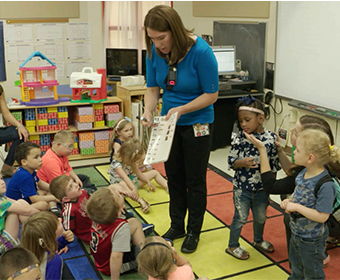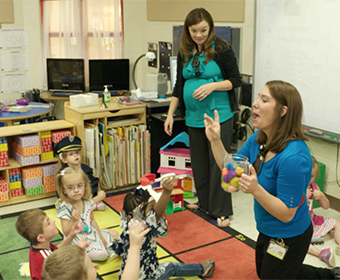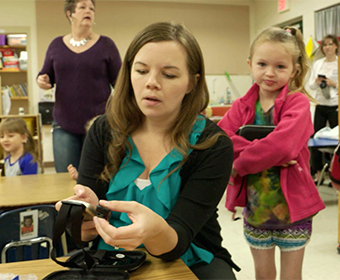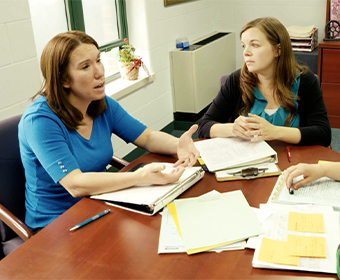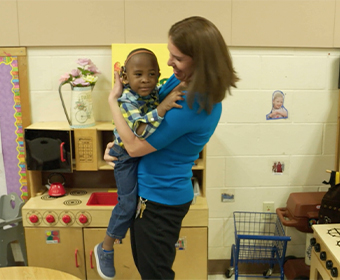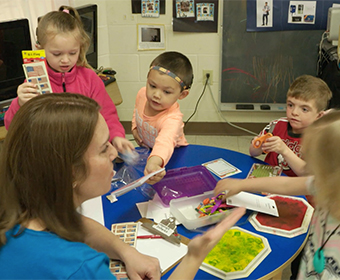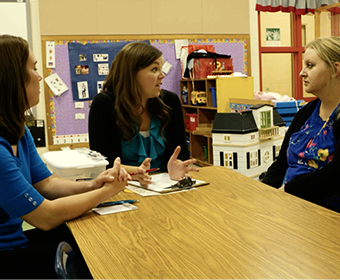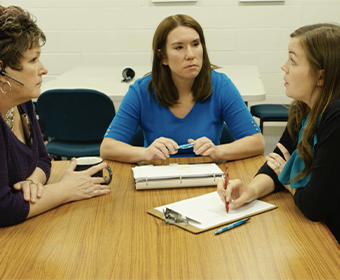The Instructional Learning Environment in a play-based Pre-Kindergarten Deaf and Hard of Hearing Class has three critical learning phases: Large Group Instruction where the teacher links the instructional purpose of the current unit of study/standards/key vocabulary using gradual learning release of “I do” (model new learning), “We do” (adult-prompted student practice of skill modeled with co-teacher), and “You do” (giving time for students to practice through a variety of applications, such as questions, connections, and peer-to-peer interactions). Small Group Instruction is where students apply their knowledge and productively work individually or with other students through “You do together” or “You do with Me” to build fluency and flexibility in key learning concepts. Independent Learning/Choice Centers are where the teacher/teaching associate/additional adults support students through “You do independently or inter-dependently with peers” to extend learning through a variety of modalities. All three phases of early learning instruction are focused on the “learning tasks requiring students to engage intellectually, to think; some may involve productive struggle” (Framework for Teaching Cluster 4: Student Intellectual Engagement 1e; 2b/3a/3b/3c).
Resources
- Framework Cluster 1: Clarity of Instructional Purpose and Accuracy of Content “Quick Notes” Observation Tool
- Framework Cluster 2: Safe, Respectful, Supportive, and Challenging Learning Environment & Cluster 3: Classroom Management “Quick Notes” Observation Tool
- Framework Cluster 4: Student Intellectual Engagement & Cluster 5: Successful Learning for ALL “Quick Notes” Observation Tool
- Framework Cluster 6: Professionalism “Quick Notes” Observation Tool
- Early Learning Planning Conversation Protocol
- Early Learning Reflection Conversation Protocol
- The 2013 Framework for Teaching Evaluation Rubrics (22 components)
- The Framework for Teaching: Six Clusters Supporting High Level Teaching and Learning, 2019 Edition

